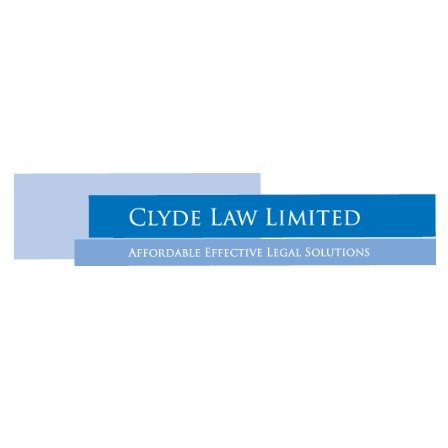Best Restructuring & Insolvency Lawyers in Hamilton
Share your needs with us, get contacted by law firms.
Free. Takes 2 min.
List of the best lawyers in Hamilton, New Zealand
About Restructuring & Insolvency Law in Hamilton, New Zealand
Restructuring and insolvency law in Hamilton, New Zealand, covers the processes and legal frameworks used when individuals or businesses face financial difficulty and are unable to pay their debts as they fall due. Hamilton, as a major city in the Waikato region, features a range of businesses from small enterprises to large companies, making it crucial to have clear procedures for debt resolution, asset protection, and business recovery. The legal environment aims to balance the interests of debtors and creditors, encourage business rescue where possible, and provide mechanisms for fair and orderly settlement in cases where insolvency is unavoidable.
Why You May Need a Lawyer
People and businesses might require a lawyer with expertise in restructuring and insolvency for several reasons. Common situations include:
- Experiencing cash flow problems and needing to restructure debt or refinance
- Facing creditor demands, statutory demands, or debt recovery proceedings
- Needing advice on voluntary administration, receivership, or liquidation processes
- Directors worried about personal liability or duties under the Companies Act
- Individual bankruptcy proceedings or alternatives like No Asset Procedure
- Seeking to buy or sell a business in distress
- Creditors wishing to protect their interests in recovery processes
- Understanding the impact of insolvency on employees, contracts, or leases
Getting expert legal advice early can help identify the best options, limit personal exposure, and maximise outcomes for all parties involved.
Local Laws Overview
Restructuring and insolvency in Hamilton is governed primarily by national legislation, but local practices and the presence of local courts and practitioners are highly relevant. Key legal frameworks include:
- Companies Act 1993: Sets out company liquidation, voluntary administration, receivership, and directors’ duties
- Insolvency Act 2006: Deals with personal insolvency, bankruptcy, and alternatives such as debt repayment orders and the No Asset Procedure
- Personal Property Securities Act 1999: Governs secured transactions and priority rights of creditors
- Insolvency Practitioners Regulation Act 2019: Regulates insolvency practitioners and ensures standards across the profession
In Hamilton, proceedings may be conducted in the Hamilton High Court or District Court, depending on the type of matter. Local legal and accounting professionals often work collectively to navigate complex situations. There is also a strong emphasis on early intervention, business rescue, and fair treatment of all involved parties according to the law.
Frequently Asked Questions
What is the difference between restructuring and insolvency?
Restructuring aims to reorganise a business's affairs, debts, or structure to improve financial health and avoid insolvency. Insolvency refers to a state where a person or company cannot pay its debts when due, potentially leading to liquidation or bankruptcy.
When should I seek legal advice if my business is struggling financially?
It is best to seek legal advice as soon as you notice sustained cash flow issues, struggle to pay creditors, or anticipate difficulties meeting tax or payroll obligations. Early intervention can provide more options for recovery or restructuring.
What are the main insolvency procedures for companies in Hamilton?
The primary insolvency procedures are liquidation (winding up the company), receivership (where a secured creditor appoints a receiver), and voluntary administration (an attempt to save the company or maximise returns for creditors).
Are directors liable for company debts if the business becomes insolvent?
Directors are generally not personally liable for company debts, but they can be held liable if they breach their duties, such as trading recklessly, incurring debt while insolvent, or failing to act in the best interests of the company.
What options exist for individuals who cannot pay their debts?
Individuals can apply for bankruptcy, a debt repayment order, or the No Asset Procedure, depending on the size of their debts and their circumstances. Each option has different consequences and eligibility criteria.
How does liquidation differ from receivership?
Liquidation involves winding up all aspects of a company and selling its assets to pay creditors. Receivership involves appointing a receiver to sell specific assets, usually for the benefit of secured creditors, while the company may continue to operate.
Can employees recover unpaid wages if a company becomes insolvent?
Employees may be able to recover some or all outstanding wages and entitlements, as they are generally ranked as preferential creditors in a company liquidation, subject to statutory caps and the availability of funds.
How does the insolvency process affect personal guarantees?
If a director or individual has personally guaranteed company debts, the insolvency of the company may trigger the guarantor's liability, meaning creditors can seek debt recovery from their personal assets.
What role do insolvency practitioners play?
Licensed insolvency practitioners administer insolvent estates, manage liquidations, supervise voluntary administrations, and help restructure businesses. Their role is regulated to ensure impartiality and competency.
What should creditors do if a debtor enters insolvency?
Creditors should promptly file a claim with the appointed insolvency practitioner, monitor the progress of the proceedings, and attend any creditors' meetings to protect their interests and vote on proposals if applicable.
Additional Resources
Several resources and organisations can help individuals and businesses in Hamilton navigate restructuring and insolvency:
- Insolvency and Trustee Service (a division of the Ministry of Business, Innovation and Employment)
- Companies Office – for searches and registration information
- New Zealand Law Society Waikato Bay of Plenty Branch
- Community Law Waikato – provides free legal advice for those who qualify
- Financial Advice New Zealand
- Local accountants and licensed insolvency practitioners
These resources can provide guidance, practical support, and referral to professional services.
Next Steps
If you believe you or your business is facing financial distress, consider the following steps:
- Start by gathering all relevant financial information, such as recent accounts, creditor and debtor lists, and legal documents
- Seek early advice from a qualified restructuring and insolvency lawyer in Hamilton to understand your legal position and options
- Consult with your accountant or financial advisor for a complete assessment
- Contact relevant support organisations or government agencies if you need further help or information
- Do not ignore creditor communication or legal notices – timely action is crucial
A specialist lawyer can assess your situation, explain possible strategies, and guide you through the most appropriate and effective process, whether that involves restructuring, negotiating with creditors, or formal insolvency proceedings.
Lawzana helps you find the best lawyers and law firms in Hamilton through a curated and pre-screened list of qualified legal professionals. Our platform offers rankings and detailed profiles of attorneys and law firms, allowing you to compare based on practice areas, including Restructuring & Insolvency, experience, and client feedback.
Each profile includes a description of the firm's areas of practice, client reviews, team members and partners, year of establishment, spoken languages, office locations, contact information, social media presence, and any published articles or resources. Most firms on our platform speak English and are experienced in both local and international legal matters.
Get a quote from top-rated law firms in Hamilton, New Zealand — quickly, securely, and without unnecessary hassle.
Disclaimer:
The information provided on this page is for general informational purposes only and does not constitute legal advice. While we strive to ensure the accuracy and relevance of the content, legal information may change over time, and interpretations of the law can vary. You should always consult with a qualified legal professional for advice specific to your situation.
We disclaim all liability for actions taken or not taken based on the content of this page. If you believe any information is incorrect or outdated, please contact us, and we will review and update it where appropriate.

















